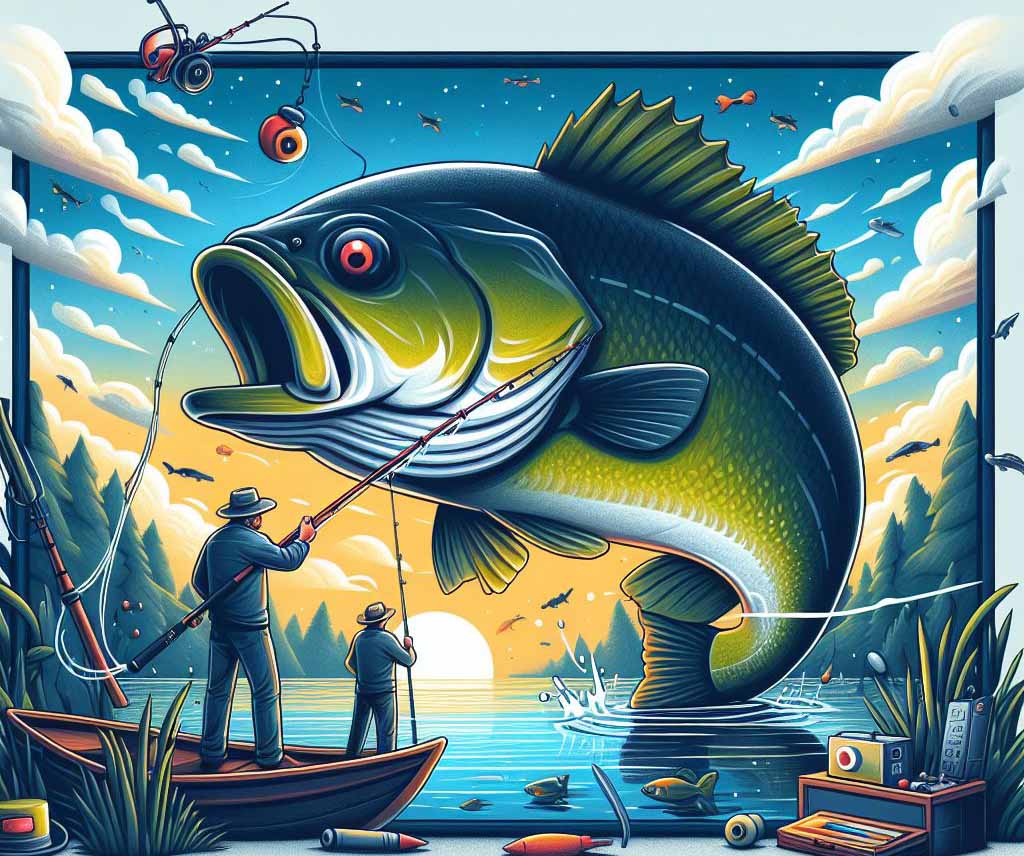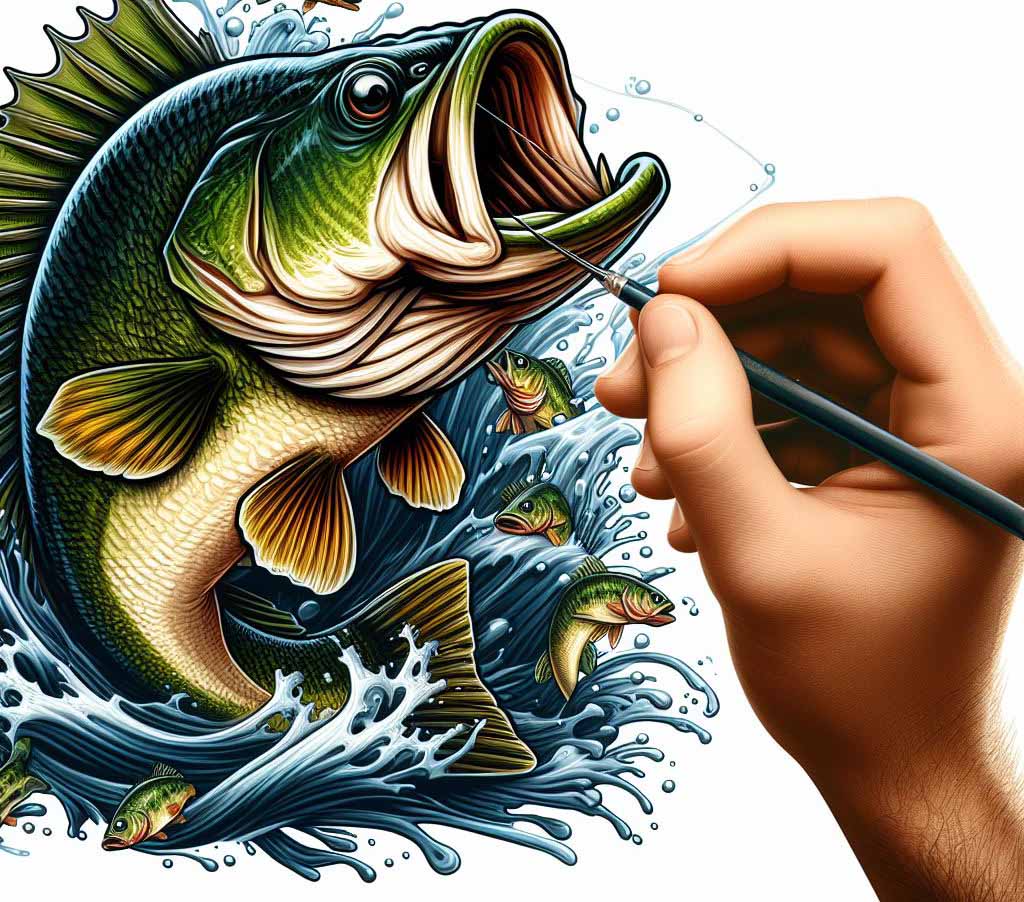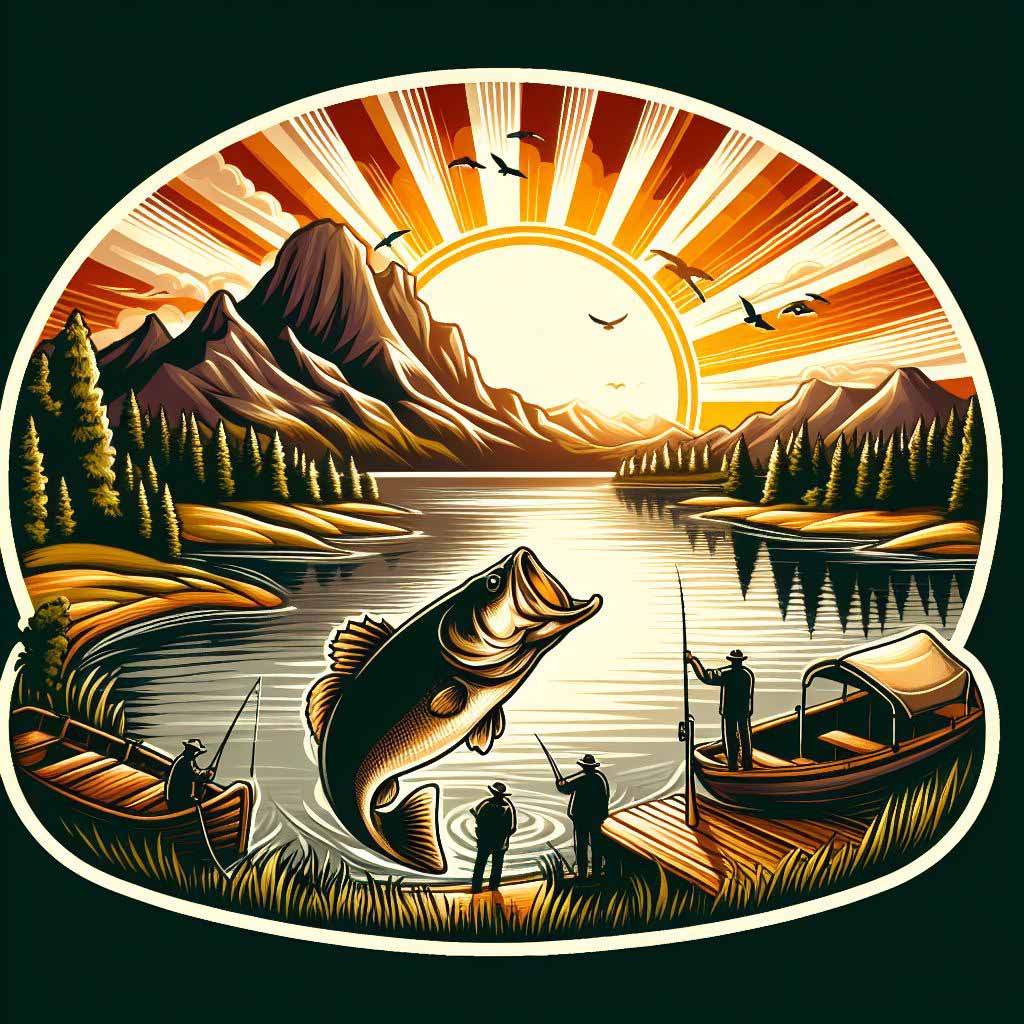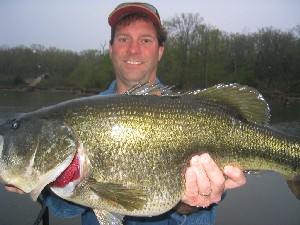
Contributed by
Lake Fork Texas
Guide Richie White
bass fishing tips : richie white catching monster fish
bass fishing tips – 1 : Fish where big fish live
To catch a 10-pound bass, it is just common sense to fish where those bass are likely to be. Most bodies of water don’t have bass over 10 pounds, especially in the northern states. Traveling a few hundred miles can make a huge difference in your shot at a monster bass. The top 3 states for monster bass are Texas, Florida, and California.
I am partial to Texas Lake Fork since I have been guiding there for over 20 years. The June 2003 edition of Bassmaster magazine states that Lake Fork “remains a fisherman’s best bet for hooking into a 10-pounder.”
Update: in 2013, Lake St. Clair, Michigan was the first in 100 selected bass fishing lakes conducted by bassmaster magazine.
The top 6 bass in Texas were all caught on Lake Fork. All six fish are over 17 pounds. If you fish in Texas, Lake Fork should certainly be at the top of your list of places to fish . Another thing I have found is that lakes with lots of weed growth and at least 20 feet of water have the best potential for big bass.
bass fishing tips – 2 : Go when the bass are big
Something many people don’t realize is that there are more 10-pound bass in most lakes in the winter and spring than summer and fall. Think about it! If you have a lake that has two 8-pounders, two 9-pounders, and one 10-pounder in early fall. By winter, the two 8-pounders are now over 9. The two 9-pounders are now over 10, and the 10 is now close to 12 pounds. In the fall, you had one 10-pounder. By winter, you could have at least three 10-pounders and possibly as many as 5.
Most of my 10-pound plus fish have come from December through April. Ironically, I probably catch 10 times as many fish from May through November. There is a definite trade off between quality and quantity.

tip – 3 : Think “just one bite”
Because of the trade off between quantity and quality, you need to have the mindset that you don’t have to catch a fish to be content. You need to keep in mind that you are after a different creature. She may or may not bite, but you are not after numbers, but that one big fish. As a guide who guarantees fish, I usually fish for numbers. But if I have a client who doesn’t care about numbers (and is willing to forfeit his guarantee), I often change to the “just one bite” mindset.
tip – 4 : Fish big-fish baits at the right time
I have boated fish over 10 pounds on a variety of lures including spinner baits, jigs, spoons, big worms, lizards, craw worms, rattle traps, ring fries, and tubes. Jigs and spinner baits are probably the best year-round big-fish bait, while the other baits tend to be more seasonal. When I’m night fishing in the summer , I catch lots of big fish on big 10″ Berkley power worms and craw worms (in addition to spinner baits and jigs). In the fall, I catch my biggest fish on big spoons. In the winter, my go-to baits are rattle traps, spinner baits, and jigs. Once the fish start spawning, I catch the bigger fish on tubes, lizards, ring fries, and jigs.
tip – 5 : Fish near deep water
Big fish tend to be near deep water. They often move shallow to feed, but don’t expect them to be in shallow water where there is no deep water around. Look for humps, pond dams, points, bridges, roadbeds, creek channels or any other place where deep water meets shallow water. Be sure to keep in mind the seasonal patterns.
tip – 6 : Fish slowly
Most people work their baits too fast. Big fish normally won’t move far to chase a bait. If you work your bait fast, you will get more little fish bites, but the big fish probably won’t bite. When worm fishing, I try to keep my bait on the bottom as much as possible. If I feel a single thump, I take slack out and immediately set the hook. If I feel a machine gun hit, I wait a while, because I know it is a little fish and the hook probably isn’t in his mouth yet. The reason big fish and little fish feel different when they hit is that when big fish hit, they suck the bait to them. (The fish doesn’t always move). Little fish, on the other hand, pick up the bait on the run and move with the bait. When the line gets tight, what you feel is the tail of the fish going back and forth like a machine gun.
tip – 7 : Fish by yourself
This may be one of the hardest for you, but your chances of catching a monster bass are much greater if you don’t have anybody else to scare that big fish away. Consider the following statistics. As a guide, I have 3 people in the boat (2 clients and myself) about 80 percent of the time. About 65 percent of my double-digit fish were caught with either one client or with me by myself. Could it be coincidence, or could your partner be costing you your big bass? I am not trying to discourage you from the enjoyment of your fishing partner, just keep that in mind. Also be mindful that 10-pound bass are different creatures. I think I catch just as many 8-pound and 9-pound bass with 3 people in the boat.
Be safe on the water if you are by yourself, especially in a small water craft. You don’t have to get far from a boat ramp to have good success. Often, the boat ramp areas are overlooked honey holes.
tip – 8 : Bigger boats are not better
I think your chances of catching a monster bass are least as good in a smaller boat as they are in a large boat. The first tournament I won was with a 11.15-pound bass that I caught out of my 14-ft aluminum boat. Whether I would have gotten her in a bigger boat, I will never know. I am just making a point that you don’t need a large boat to catch a large fish. A big boat will sometimes keep you away from the fish or running across the lake too much. You can often do just as well out of a canoe, tube, or even from the bank. Troy Coates, a personal friend of mine, caught the number 5 bass in Texas (at the time) fishing at night in February from the bank. That topped his personal best of 14 pounds, which was also caught from the bank.
bass fishing tips – 9 : Learn from others
You should try to learn as much as possible from those who have caught big bass. There are lots of good sources of information available to help you catch more and bigger fish. I recommend utilizing the Internet, reading magazines and books, going to seminars, talking to people at the marinas and tackle shops, and (of course) hiring a guide.
The Internet is a great way to get good information. You can not only get fishing reports on your favorite lake, but you can also ask questions and get answers on the fishing forums. You would be surprised how many fishing forums there are and just how many people will make posts. Often there are more people talking about fishing than there are on the lake. I guess most fishermen have real jobs and spend their time wishing instead of fishing. Keep in mind when you are reading their posts that most of these people are only part time fishermen. Be also mindful that the stereotype is often true that fishermen are good liars.
Books and magazines can be good tools for learning more about catching a monster bass. I recommend getting all the books and magazine subscriptions you can afford and have time to read, especially the ones that specialize in bass fishing. That way, you can keep up with the latest trends, tackle, electronics, boats, pros, etc. When reading fishing books and magazines, keep in mind who the writers are, where they fish, what they have caught, the seasonal patterns discussed, and whether what you read can be applied to where you fish. Also, keep in mind that BASS pros are mainly interested in winning tournaments.
Their goal is not necessarily to catch monster bass. If you look at the top big bass weighed in during the BASS tournaments, rarely do you see monster bass weighed in. Some of those pros have never caught a 10-pounder. It is not that they aren’t capable of doing so, but they fish lakes that don’t have monster bass, so they aren’t trying to catch them.
Another way to learn more is to go to seminars taught by guides and BASS pros. You can learn what baits to throw, how to throw them, and how to retrieve them. You can also see how fish in a tank react to certain lures. You should, however, keep in mind that often the purpose of these seminars is to sell stuff. Just because fish in a tank will go to these lures doesn’t mean that those lures will attract far-away fish from a public lake with not so clear water.
You may buy those lures with excitement only to be disappointed when you get to the lake.
You can also learn from talking to people in the tackle shops and marinas. They are often willing to give you more information than you want to hear. They will usually tell you good information, but keep in mind that they will probably be giving the same information to everyone else. This means that you may be sharing a honey hole and fishing the same baits as the multitudes.
Something to consider about all these learning tools is that you haven’t even seen a fish being caught, much less caught one yourself. Your confidence level can easily be destroyed when you learn all the proper techniques and fail to present the right offering in the right place at the right time. You could be fishing unproductive water, using faulty or inadequate equipment, or fishing under the worst conditions and not even know it. You can probably learn more in a short time by hiring a guide than any other way. A full-time guide will be familiar with the lake and the seasonal patterns and what works best.
He can teach you things like what baits to use, how to read a graph, when to go, what equipment is best, what to look for, etc. Guides may be expensive, but it is staggering how much some people will spend just to fish a few times a year. There are a lot of fishermen who could save money by hiring a guide every time they fished.
If you do hire a guide to catch monster bass, make sure you get a reputable guide and go when he recommends. Let him show you what to throw. Don’t waste your time trying to find what they are biting. Let him do that. You should fish with his confidence baits. You are paying for his expertise, not the other way around. Also, keep in mind that no two guides are alike. Just because you had a bad experience with one, doesn’t mean you will have the same with another – and vice versa.
If you really want to catch a monster bass, let your guide know what you are after and that you don’t care if you get skunked trying. You must be willing to sacrifice quantity for quality. If you go with an experienced guide who has caught monster bass using the same techniques during the same seasonal pattern, you may get the fish of a life time or you may not get a bite that day. However, your biggest gain is the knowledge and confidence you have when you go on your own. If it worked for him, chances are it will work for you also.
How to catch a monster bass video
How to catch a monster bass images :richie white


